Tokyo Story (???? T?ky? Monogatari) is a 1953 Japanese drama film directed by Yasujir? Ozu and starring Chish? Ry? and Chieko Higashiyama. It tells the story of an ageing couple who travel to Tokyo to visit their grown children. The film contrasts the behavior of their children, who are too busy to pay them much attention, with that of their widowed daughter-in-law, who treats them with kindness.
| Tokyo Story | |
|---|---|
Japanese theatrical release poster | |
| Directed by | Yasujir? Ozu |
| Produced by | Takeshi Yamamoto |
| Written by | K?go Noda Yasujir? Ozu |
| Starring | Chish? Ry? Chieko Higashiyama Setsuko Hara |
| Music by | Kojun Sait? |
| Cinematography | Y?haru Atsuta |
| Edited by | Yoshiyasu Hamamura |
Production company | Shochiku |
Release date |
|
Running time | 136 minutes |
| Country | Japan |
| Language | Japanese |
Ozu and screenwriter K?go Noda wrote the script in 103 days, loosely basing it on the 1937 American film, Make Way for Tomorrow, directed by Leo McCarey. Noda suggested adapting the film, which Ozu had not yet seen. Ozu used many of the same cast and crew members that he had worked with for years. Released in Japan in 1953, it did not immediately gain international recognition and was considered "too Japanese" to be marketable by Japanese film exporters. It was screened in London in 1957 where it won the inaugural Sutherland Trophy the following year, and received praise from US film critics after a 1972 screening in New York City.
Tokyo Story is widely regarded as Ozu's masterpiece and is often cited as one of the greatest films ever made. In 2012, it was voted the best film of all time in a poll of film directors by Sight & Sound magazine.
Screenplay
A retired couple, Sh?kichi and Tomi Hirayama (played by Chish? Ry? and Chieko Higashiyama respectively) live in the town of Onomichi in southwest Japan with their daughter Ky?ko (played by Ky?ko Kagawa) who is a primary school teacher. They have five adult children, four living. The couple travels to Tokyo to visit their son, daughter, and widowed daughter-in-law.
Their eldest son, K?ichi (So Yamamura), is a pediatrician, and their eldest daughter, Shige (Haruko Sugimura), runs a hairdressing salon. K?ichi and Shige are both busy, and do not have much time for their parents. Only their widowed daughter-in-law, Noriko (Setsuko Hara), the wife of their middle son Sh?ji, who was missing-in-action and presumed dead during The Pacific War, goes out of her way to entertain them. She takes time from her busy office job to take Sh?kichi and Tomi on a sightseeing tour of metropolitan Tokyo.
K?ichi and Shige pay for their parents to stay at a hot spring spa at Atami. Sh?kichi and Tomi return early because the nightlife at the hotel disturbs their sleep. Tomi also has an unexplained dizzy spell. When they return, Shige explains that she sent them to Atami because she wanted to use their bedroom for a meeting. The elderly couple have to leave for the evening. Tomi goes to stay with Noriko, with whom she deepens their emotional bond. Tomi advises Noriko to remarry. Sh?kichi, meanwhile, gets drunk with some old friends from Onomichi, then returns to Shige's salon. Shige is outraged that her father is lapsing into the alcoholic ways that overshadowed her childhood.
The couple remark on how their children have changed, and they leave for home earlier than planned, intending to see their younger son Keiz? when the train stops in Osaka. Though they originally had planned to see him without leaving the train, Tomi takes ill during the journey and they decide to disembark, staying until she feels better the next day. When they reach Onomichi, Tomi falls critically ill. K?ichi, Shige, and Noriko rush to Onomichi to see Tomi, who dies shortly afterwards. Keiz? arrives too late, as he has been away on business.
After the funeral, K?ichi, Shige, and Keiz? leave immediately; only Noriko remains. After they leave, Ky?ko expresses to Noriko her anger about her siblings by deriding them over their selfishness toward their parents. She believes that K?ichi, Shige, and Keiz? do not care how hard it will be for their father now that he has lost their mother. Ky?ko believes that strangers would have been more respectful. Noriko responds that while she understands Kyoko's disappointment, she explains that everyone has his own life to lead and that the growing chasm between parents and children is inevitable. She convinces Kyoko not to be too hard on her siblings because one day she will come to understand how hard it is to take time away from one's own life.
After Ky?ko leaves for school, Noriko informs her father-in-law that she must return to Tokyo that afternoon. Sh?kichi tells her that she has treated them better than their own children despite not being related by blood. Noriko protests that she is selfish, and Sh?kichi credits her self-assessment to humility. He gives her a watch from the late Tomi as a memento. Noriko breaks down in tears and confesses her loneliness. Sh?kichi encourages her to remarry as soon as possible, stating that he wants her to be happy. At the end, Noriko travels from Onomichi back to Tokyo, contemplating the watch, as symbol of the passing of time and uncertainty of her future, while Sh?kichi remains behind, resigned to the solitude he must endure in his home in the harbor town of Onomichi.
Hirayama family tree
- Sh?kichi (Grandfather) and Tomi (Grandmother)
- K?ichi (eldest son)
- Fumiko (K?ichi's wife)
- Minoru (K?ichi's son)
- Isamu (K?ichi's son)
- Shige (eldest daughter)
- Kuraz? (Shige's husband)
- Sh?ji (2nd son, deceased)
- Noriko (Sh?ji's widow)
- Keiz? (youngest son)
- Ky?ko (youngest daughter)
- K?ichi (eldest son)
|
|
Tokyo Story was inspired by the 1937 American film Make Way for Tomorrow, directed by Leo McCarey. Noda initially suggested the plot of the older film to Ozu, who hadn't seen it. Noda remembered it from its initial release in Japan. Both films depict an elderly couple and their problems with their family and both films depict the couple travelling to visit their children. Differences include the older film taking place in Depression era US with the couple's problem being economical and Tokyo Story taking place in post-war Japan, where the problems are more cultural and emotional. The two films also end differently. David Bordwell wrote that Ozu "re-cast" the original film instead of adapting it.
The script was developed by Yasujir? Ozu and his long-time collaborator K?go Noda over a period of 103 days in a country inn in Chigasaki. Ozu, Noda and cinematographer Y?haru Atsuta scouted locations in Tokyo and Onomichi for another month before shooting started. Shooting and editing the film took place from July to October 1953. Filming locations were in Tokyo (Adachi, Ch??, Tait? and Chiyoda), Onomichi, Atami and Osaka. Most of indoor scenes were shot at the Shochiku ?funa Studio in Kamakura, Kanagawa. Ozu used the same film crew and actors he had worked with for many years. Actor Chish? Ry? said that Ozu was always happiest when finishing the final draft of a script and that there were never any changes to the final draft.
Tokyo Story was released on November 3, 1953 in Japan. The following year Haruko Sugimura won the Mainichi Film Award for Best Supporting Actress for her role as the eldest daughter Shige.
It was screened at the National Film Theatre in London in 1957. It is Ozu's best known film in both the East and the West. After the success of Akira Kurosawa's Rashomon at the 1951 Venice Film Festival, Japanese films began getting international distribution. However Japanese film exporters considered Ozu's work "too Japanese" and unmarketable. It was not until the 1960s that Ozu's films began to be screened in New York City at film festivals, museums, and theaters.
In 1958, it was awarded the first Sutherland Trophy for the most original and creative film. UK critic Lindsay Anderson wrote that "It is a film about relationships, a film about time, and how it affects human beings (particularly parents and children) and how we must reconcile ourselves to its workings."
After a screening at the New Yorker Theater in 1972, it received rave reviews from several prominent critics who were unfamiliar with the film or Ozu. Charles Micherer of Newsweek said it was "like a Japanese paper flower that is dropped into water and then swells to fill the entire container with its beauty." Stanley Kauffmann put it on his 10 Best list of 1972 and wrote "Ozu, a lyrical poet, whose lyrics swell quietly into the epic."
The film holds a 100% "Fresh" rating on the review aggregate website Rotten Tomatoes, based on 42 critical reviews, with an average score of 9.7/10. John Walker, former editor of the Halliwell's Film Guides, places Tokyo Story at the top of his published list of the best 1000 films ever made. Tokyo Story is also included in film critic Derek Malcolm's The Century of Films, a list of films which he deems artistically or culturally important, and Time magazine lists it among its All-Time 100 Movies. Roger Ebert includes it in
Watch movie Tokyo Story online on Amazon
Watch movie Tokyo Story online
Watch The Movie On PrimeVachanam Full HD Movie Download
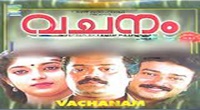
Amar Akbar Anthony Full HD Movie Download

Woh Main Nahin Full HD Movie Download
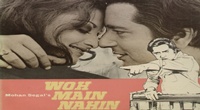
Saudagar Full HD Movie Download
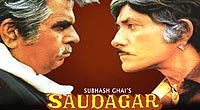
Raavan (2010) Full HD Movie Download
.jpg)
Swarg Full HD Movie Download

Saheb Bahadur Full HD Movie Download
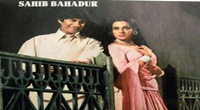
Ram Tere Kitne Naam Full HD Movie Download
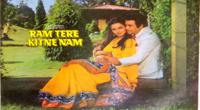
Chhota Sa Ghar Full HD Movie Download
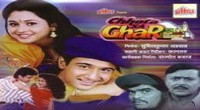
Lakhon Mein Ek (1971) Full HD Movie Download
.jpg)
Inspector Kiran Full HD Movie Download

Jyoti Full HD Movie Download
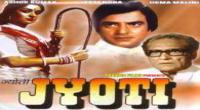
Manikya Chempazhukka Full HD Movie Download

Dongodu Full HD Movie Download

Kamini Full HD Movie Download
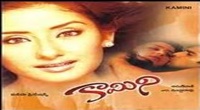
Kokila Full HD Movie Download
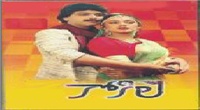
Maha Mantri Timmarusu Full HD Movie Download
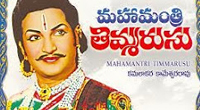
Satyanarayana Swamy Full HD Movie Download
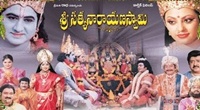
Bhale Dongalu Full HD Movie Download

Eminent Domain Full HD Movie Download
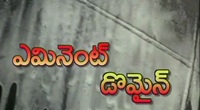
Daag: A Poem of Love Full HD Movie Download
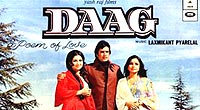
Download latest Movie from bollywood
- 1> baaghi 3
- 2> THE SKY IS PINK MOVIE FULL STORY AND REVIEW
- 3> Luka Chuppi
- 4> TO ALL THE BOYS I’VE LOVED BEFORE
- 5> Kabir Singh
- 6> Street Dancer 3D
- 7> Simmba
- 8> Gone Girl
- 9> The Girl Who Lived
- 10> Ludo
- 11> DILWALE DULHANIA LE JAYENGE
- 12> GUILTY
- 13> The Godfather
- 14> Adventures of Rusty
- 15> Sooryavanshi
- 16> Satyameva Jayate 2
- 17> Thappad
- 18> Bhool Bhulaiyaa 2
- 19> KGFChapter 2
- 20> Mardaani 2
- 21> Pinjar
- 22> Shivaji maharaj
- 23> Ek Villian 2
- 24> Hungama 2
- 25> Divergent
- 26> Mumbai Saga
- 27> The Internship
- 28> HIT (telugu)
- 29> Panga
- 30> The perfect date
- 31> 16 December
- 32> Gopala Gopala (Telugu)
- 33> Brahmastra
- 34> Gangubai Kathiawadi
- 35> Manmadhudu
- 36> Nenu local
- 37> Mahanati
- 38> Shatamanam bavathi
- 39> Lagaan
- 40> After
- 41> MOM
- 42> Shamshera
- 43> Raguvaran BTech
- 44> Khakee
- 45> The villain
- 46> OM
- 47> Mr. perfect
- 48> Bueatifull mind
- 49> Hichki
- 50> Gabbar Singh
- 51> Jogi
- 52> Before Sunrise
- 53> Before Sunset
- 54> Before Midnight
- 55> The Big Bull
- 56> Top Gun: Maverick
- 57> The Purge
- 58> The Sky is Pink
- 59> Laxmmi Bomb
- 60> Sadak 2
- 61> Sufna
- 62> Prithviraj
- 63> PK
- 64> Coolie No 1(2020)
- 65> Black Widow
- 66> Dear Zindagi
- 67> Dil Bechara
- 68> PHIR HERA PHERI
- 69> WAR
- 70> Dostana
- 71> RRR: Roudram Ranam Rudhiram
- 72> Maidan
- 73> Dabbang 3
- 74> Chhalaang
- 75> life as we know it
- 76> SherShaah
- 77> Sandeep Aur Pinky Faraar
- 78> Event Horizon
- 79> 83
- 80> Radhe: Your Most Wanted Bhai
- 81> Gunjan Saxena: The Kargil Girl
- 82> Mr India
- 83> Vivah
- 84> Anokha Bandhan
- 85> Ghost
- 86> Bhoot: Part One - The Haunted Ship
- 87> Haseen Dilruba
- 88> Laal Singh Chaddha
- 89> Qismat
- 90> Rajput
- 91> Drive
- 92> Dil Chahta Hai
- 93> Dil Ki Baazi
- 94> Dil Ka Rishta
- 95> Teesri Manzil
- 96> Dil
- 97> Love Aaj Kal
- 98> Khaali Peeli
- 99> Bunty Aur Babli 2
- 100> Atrangi Re
- 101> Gulabo Sitabo
- 102> Jodi
- 103> Suraj Pe Mangal Bhari
- 104> Deewana
- 105> Attack
- 106> Sardar Udham Singh
- 107> Toofan
- 108> THE LOVEBIRDS
- 109> Jersey
- 110> Ginny Weds Sunny
- 111> Thalaivi
- 112> Shiddat
- 113> Angels vs Zombies
- 114> Koi Mil Gya
- 115> Thank God
- 116> Bhuj: The Pride of India
- 117> Hum Aapke Hain Kaun
- 118> The Platform
- 119> Bird Box
- 120> Roohi Afzana
- 121> Torbaaz
- 122> Nikamma
- 123> World War Z
- 124> Extraction
- 125> Train to Busan
- 126> Life of Pi
- 127> SHAADI MEIN JROOR AANA
- 128> Himmat Aur Mehnat
- 129> To All The Boys: P.S. I Still Love You
- 130> Mimi
- 131> Good Newwz
- 132> Shubh Mangal Zyada Saavdhan
- 133> Raabta
- 134> Harry Potter and the Philosopher's Stone
- 135> Harry Potter and the Chamber of Secrets
- 136> Chhapaak
- 137> War of the Worlds
- 138> Harry Potter and the Prisoner of Azkaban
- 139> Harry Potter and the Goblet of Fire
- 140> MURDER MYSTERY
- 141> Shakuntala Devi
- 142> Bachchan Pandey
- 143> Jayeshbhai Jordar
- 144> Sheer Qorma
- 145> Saina
- 146> 'O' Pushpa I hate tears
- 147> Kedarnath
- 148> MS Dhoni The Untold Story
- 149> Chhichhore
- 150> Badhaai Ho
- 151> Unstoppable
- 152> Oz the Great And Powerful
- 153> The Girl on the Train
- 154> Haathi Mere Saathi 2020
- 155> The Conjuring: The Devil Made Me Do It
- 156> Gandhi Se Pehle Gandhi
- 157> The Song of Scorpions
- 158> Srimanthudu
- 159> Hello Guru Prema Kosame
- 160> Beauty and The Beast
- 161> Black Panther
- 162> Charlie and the Chocolate Factory
- 163> Bole Chudiyan
- 164> Fidaa
- 165> Duvvada Jagannadham
- 166> Bruce Lee: The Fighter
- 167> Hyper
- 168> Yaara
- 169> Red (2020)
- 170> Shivam
- 171> That Is Mahalakshmi
- 172> Nishabdham
- 173> Aashram 2020 web series
- 174> Laxmii
- 175> Mismatched
- 176> STUDENT OF THE YEAR 2
- 177> NAIL POLISH
- 178> Ramprasad Ki Tehrvi
- 179> KAAGAZ
- 180> 12 o Clock
- 181> The Power
- 182> bolo hau
- 183> Tribhanga
- 184> JAMUN
- 185> Madam Chief Minister
- 186> Maasaab
- 187> Aadhaar
- 188> Tanhaji
- 189> Bhaagi 3
- 190> Bhootnath
- 191> MALANG
- 192> Jai Mummy Di
- 193> Haathi Mere Saathi 2021
- 194> Shakeela
- 195> Unpaused
- 196> Annayya
- 197> Vamsoddharakudu
- 198> Mrugaraju
- 199> Narasimha Naidu
- 200> Sankranti
- 201> Manasu Maata Vinadhu
- 202> Anjaane
- 203> Apaharan
- 204> Bachke Rehna Re Baba
- 205> Bewafaa
- 206> Roohi
- 207> Radhe
- 208> Zindagi Khoobsoorat Hai
- 209> Yeh Mohabbat Hai
- 210> Yeh Kya Ho Raha Hai?
- 211> The Tomorrow War
- 212> DehradunDiary
- 213> Meri Shaadi Karaoo
- 214> Matruu Ki Bijlee Ka Mandola
- 215> No One Killed Jesica
- 216> Aag Ka Goola
- 217> Eight Million Dollars
- 218> Three Hundred
- 219> Cats and Dog
- 220> Decoy
- 221> Gold Rush
- 222> You Have Got Mail
- 223> Final Destination three
- 224> Tofan
- 225> Jungle
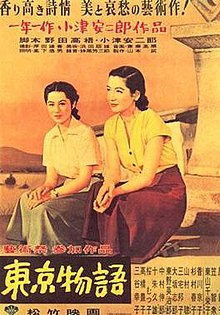 Story of movie Tokyo Story :
Story of movie Tokyo Story : 